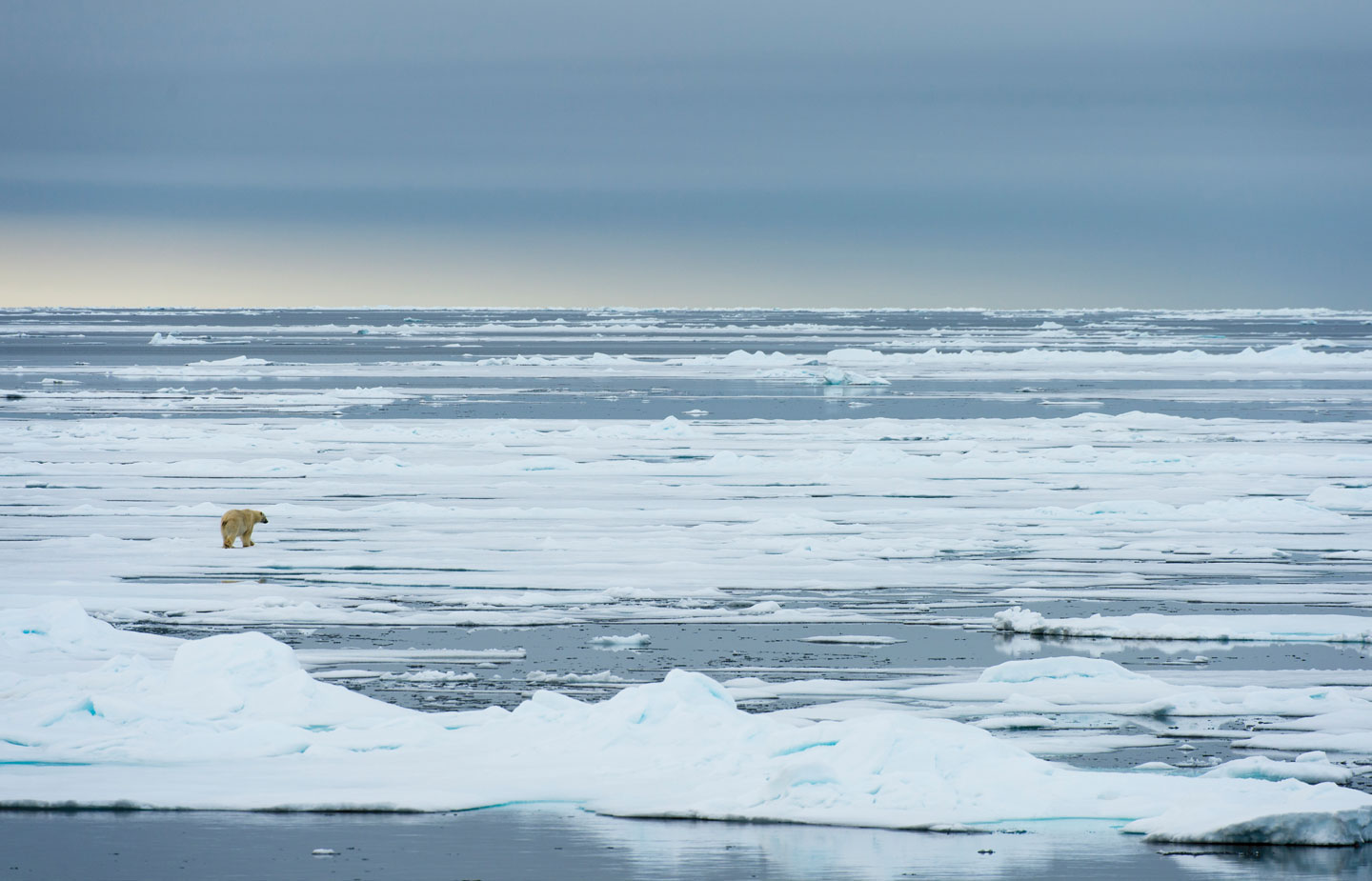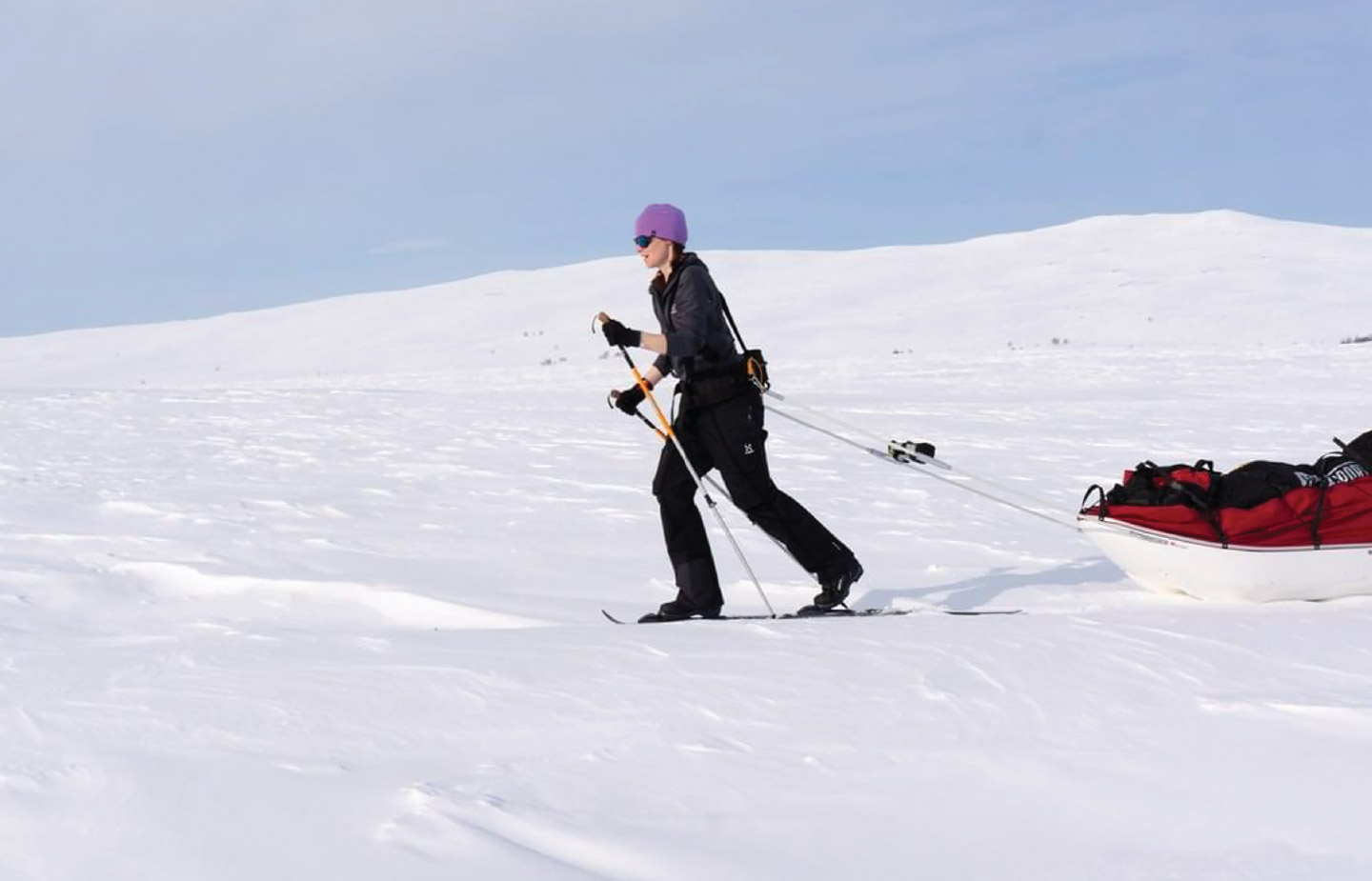What You Can’t See
To document Arctic climate change, Susana Hancock ’07 joins an expedition across Svalbard, an archipelago that is part of Norway and is located north of the Arctic Circle.
Climate researcher Susana Hancock ’07 can identify turning points on her career path that occurred long before she became a Winthrop Scholar at Connecticut College.
“I was 4 when I decided I wanted to be an astrophysicist, and that was a falling in love with the world around me and wanting to study what I couldn’t see, what was beyond the Earth,” she said.
The focus turned less cosmic when Hancock, at age 14, began taking astrophysics and astronomy classes at the University of Southern Maine.
“At that point, I became really bothered by the fact that I was working with amazing people who were looking for extraterrestrial life and Earthlike planets when we’re actively destroying the Earth that we have,” she recalled.
“I started becoming more interested in environmental science on Earth.”
Hancock went on to get a bachelor’s degree in linguistics and Slavic studies at Conn, where she once took 10 classes during one semester, and then master’s degrees in anthropology and linguistics and a doctorate in anthropology, all from Oxford, where she was a Rhodes Scholar.
Juggling various roles, including director of Climate Action Now, a nonprofit she founded, Hancock is among a half dozen people taking part in a monthlong climate change research project. She is participating in the Swedish Jubilee Expedition Svalbard 2022 to document the changing climate in the Arctic. The expedition is retracing the journey made by polar explorer A.E. Nordenskiöld in 1872-1873. Svalbard, an archipelago, is part of Norway, located in the Arctic Ocean north of the Arctic Circle.
The group departed to Longyearbyen, Svalbard, for final logistics on April 26. The expedition began May 1 with a journey by snowmobile to reach the starting point at Mossel Bay. From there, the expedition was to embark on skis and be unsupported for up to 35 days. The tentative date to end the expedition is June 5. Sometime in the fall, a premiere will be held in Stockholm, Sweden, for a documentary film on the expedition.
Hancock is working on numerous projects, primarily conducting experiments aimed at gauging the climate effects of plastic—she notes that plastics and other trash build up even without people living in the area—and the effects of emissions from shipping.
“The Arctic has been warming four times faster than the rest of the world, on average. It is changing circulation patterns in oceans around the world. You get the ice that’s melting; obviously that causes sea-level rise around the world. It is also changing the salinity of the oceans and is strengthening and weakening different currents,” she said.

